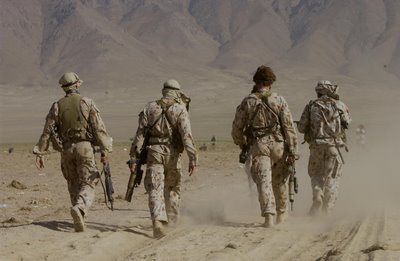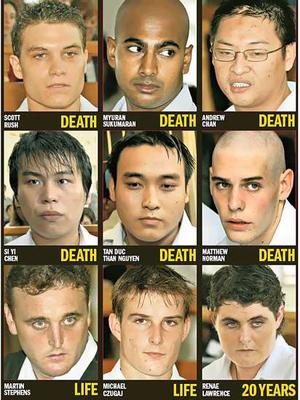Originally posted on 'The Road To Surfdom'
By Darryl Mason
It’s not often you get to see a roomful of Australians laughing at the Attorney General, twice, in the space of an hour. And it wasn’t a pretty sight.
No doubt Phillip Ruddock was expecting a particularly uncomfortable afternoon when he went along to the taping of SBS’s Insight forum show debating the American detention of terrorism suspect, and Australian citizen, David Hicks.
You can only imagine Ruddock never expected it to go as bad as it did. How bad?
Absolutely terrible.
Ruddock was given numerous chances to make his case for why the Howard government had not done more, earlier, to pressure the Bush administration into getting the David Hicks military trial underway, or to get him released. But there was nothing new from Ruddock. His talking points were dashed by lawyerly waffle and blame-gaming.
Blame Hick’s defence, blame the other Gitmo inmates who appealed against the earlier, discredited, Supreme Court rejected military trial set-up, and yes, even blame the Americans as well.
Ruddock wasn’t out to save the credibility of the American military trial system now in place. He wasn’t out to save the credibility of the prime minister, or Alexander Downer, or President Bush. Ruddock was there, with his Amnesty International pin in place, to try and rescue the last fading threads of his own credibility. And he failed.
The loudest laugh from the audience, a laugh full of contempt and disbelief, came when Ruddock said the Australian government had never been happy with the time it had taken for Hicks to firstly be charged and then for the military trial rules to be finalised and accepted by the highest court in the United States.
They laughed because they know the Howard government only changed its tune on Hicks once it became clear that his five year long detention, without trial, was the sort of “fair go” issue that could hammer Howard hard at the 2007 federal election. They changed their tune when the polls showing almost 70% of Australians were not happy with Howard on the issue of David Hicks told them they had no choice.
But even worse for Ruddock, his waffly, defensive rhetoric seemed even more cold and empty than usual because David Hick’s dad and his shattered step-mother were sitting only a few seats away. The distress on her face alone made Ruddock’s words seem all but meaningless.
Ruddock looked close to tears himself, on a number of occasions, even though the case against what has happened to David Hicks was argued reasonably, and calmly, by Terry Hicks, former Guantanamo Bay detainees, audience members and Hick’s defence lawyer Major Mori.
It was hardly a gang assault of abuse and shouting aimed at Ruddock, but he still came close to cracking.
He was there to represent the government and his department but he also found himself, as usual, defending the actions of the Bush administration, something he was clearly not happy having to do. But there lies the rub. Ruddock had choice but to try and back up the stance of Bush Co. when it comes to detainees like Hicks. They’re our closest ally, after all. And this is supposed to a war against terrorists, suspected and/or confirmed.
Most in the audience didn’t look particularly angry, just sad, disappointed, worn out by the apparent pettiness of the evidence against Hicks that was raised by his military prosecutor.
Is that it? Is that all they’ve got on this guy?
As terrible as it is that a young Australian went to fight for an outfit as odious as the Taliban, the charges still not formally laid against Hicks, and the case made by the prosecutor (who couldn’t have asked for a more open forum to say whatever he wanted), still don’t add up to enough to make most Australians think Hicks deserves to be held like a rat in a steel box for half a decade.
Let alone be tortured and mind-fucked.
Go Here To Read The Full Story
